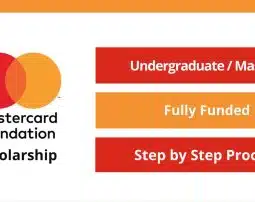What Recruiters Wish You Knew: Insider Tips for Job Seekers
What Recruiters Wish You Knew: Insider Tips for Job Seekers
Contents
- 1 What Recruiters Wish You Knew: Insider Tips for Job Seekers
- 2 1. Your Resume Is Your First Impression – Make It Count
- 3 2. Recruiters Are Not Your Enemy
- 4 3. Online Presence Matters More Than You Think
- 5 4. Apply for Roles You are Qualified For (But Don’t Undersell Yourself)
- 6 5. Communication Is Everything
- 7 6. Interviews Are About More Than Skills
- 8 7. Salary Expectations: Be Honest and Flexible
- 9 8. Ghosting After an Interview Hurts Your Reputation
- 10 9. Follow Up Without Being Pushy
- 11 10. Your Attitude Matters More Than You Realize
Finding a job can feel like a full-time job itself. From tailoring your resume to preparing for interviews, job hunting is stressful. But what if you had insider information straight from the recruiters themselves—the people who decide whether you move forward or not? Understanding what recruiters really want could be the game-changer you need.
Here below is an in-depth look at what recruiters wish every job seeker knew.
1. Your Resume Is Your First Impression – Make It Count
Recruiters spend 6–10 seconds scanning a resume before deciding whether to read more. That means your resume needs to be clear, concise, and relevant.
Here is what they wish you would do:
- Tailor your resume to the job description. Use keywords from the posting. If the ad mentions “project management” or “data analysis,” make sure those words appear naturally in your resume.
- Keep it simple. Avoid fancy fonts and graphics unless you’re in a creative field.
- Highlight achievements, not just duties. Instead of writing “Responsible for sales,” write “Increased sales by 25% in six months.” Numbers make an impact.
Pro Tip: Recruiters love bullet points that start with action verbs like managed, developed, implemented, or achieved.
2. Recruiters Are Not Your Enemy
Some job seekers view recruiters as gatekeepers, but the truth is, recruiters want you to succeed. Their job depends on finding the right candidate. When they give feedback, take it seriously—it means they see potential in you.
Also, don’t ghost recruiters. If you have changed your mind or accepted another offer, just say so. It shows professionalism, and they will remember you for future roles.
3. Online Presence Matters More Than You Think
Did you know that over 90% of recruiters check your LinkedIn profile before moving forward? Your social media footprint can make or break your chances.
Here is what they are looking for:
- A professional LinkedIn photo. No selfies, no vacation pictures.
- A clear headline and summary. Instead of “Job Seeker,” write something like “Experienced Marketing Specialist | Digital Strategy & SEO.”
- Consistency. Your job history on LinkedIn should match your resume.
And yes, recruiters might peek at your other social profiles. Make sure there’s nothing that could raise red flags.
4. Apply for Roles You are Qualified For (But Don’t Undersell Yourself)
Recruiters want ambitious candidates, but they also want realistic ones. Applying for jobs you are wildly unqualified for wastes everyone’s time. However, don’t hold back if you meet 70–80% of the requirements. Most job descriptions are a wish list, not a rigid checklist.
If you lack a specific skill, show a willingness to learn. For example:
“While I don’t have direct experience in X, I’ve successfully handled Y, which required similar skills.”
5. Communication Is Everything
Recruiters wish more candidates understood that how you communicate reflects how you will perform on the job. Respond promptly to emails and calls. If you can’t make an interview, reschedule professionally, don’t disappear.
When emailing recruiters:
- Use a professional tone (even if they seem casual).
- Proofread your messages. Typos can signal carelessness.
- Keep it short and clear.
6. Interviews Are About More Than Skills
Yes, your technical skills matter, but recruiters are also evaluating soft skills—like communication, adaptability, and cultural fit. Many candidates fail interviews not because they can’t do the job, but because they don’t show enthusiasm, confidence, or teamwork.
What recruiters wish you would do:
- Research the company. Nothing screams disinterest like asking, “What do you guys do?”
- Prepare examples. Use the STAR method (Situation, Task, Action, Result) to answer behavioral questions.
- Ask questions. At the end, have thoughtful questions ready like:
“What does success look like in this role?”
“What challenges is the team currently facing?”
7. Salary Expectations: Be Honest and Flexible
Recruiters hate playing the guessing game. If they ask for your salary expectations, give a range based on research. Use sites like Glassdoor or PayScale to find benchmarks. Avoid saying:
“I’m open to anything.”
This can make you seem unsure or unprepared. Instead, say:
“Based on my experience and market rates, I’m looking for a range of X to Y, but I’m flexible depending on the overall package.”
8. Ghosting After an Interview Hurts Your Reputation
If you decide you are no longer interested in a role, don’t vanish. Send a quick thank-you email and explain politely that you’ve accepted another opportunity. Recruiters talk, and ghosting can follow you in future applications.
9. Follow Up Without Being Pushy
Recruiters appreciate candidates who follow up—just do it right. Send a thank-you email within 24 hours after an interview. If you haven’t heard back in a week or two, a polite email like:
“Hi [Name], I wanted to follow up on the [Position] role. I’m still very interested and would love any updates you can share.”
This shows enthusiasm without being desperate.
10. Your Attitude Matters More Than You Realize
Skills can be taught; attitude can’t. Recruiters want people who are positive, eager, and adaptable. A bad attitude—even if you’re highly qualified—can cost you the job. Be respectful to everyone you interact with, from the receptionist to the hiring manager.
Final Thoughts
Recruiters aren’t just checking boxes; they are looking for someone who will add value and fit into the company culture. By understanding what they wish you knew—tailoring your resume, building a strong online presence, communicating professionally, and showing genuine interest—you will dramatically improve your chances of landing the job.
Remember: The little things—like sending a thank-you email or arriving on time—speak volumes.
Are you ready to put these tips into practice and stand out in your job search? Start now, because your dream job is closer than you think.





